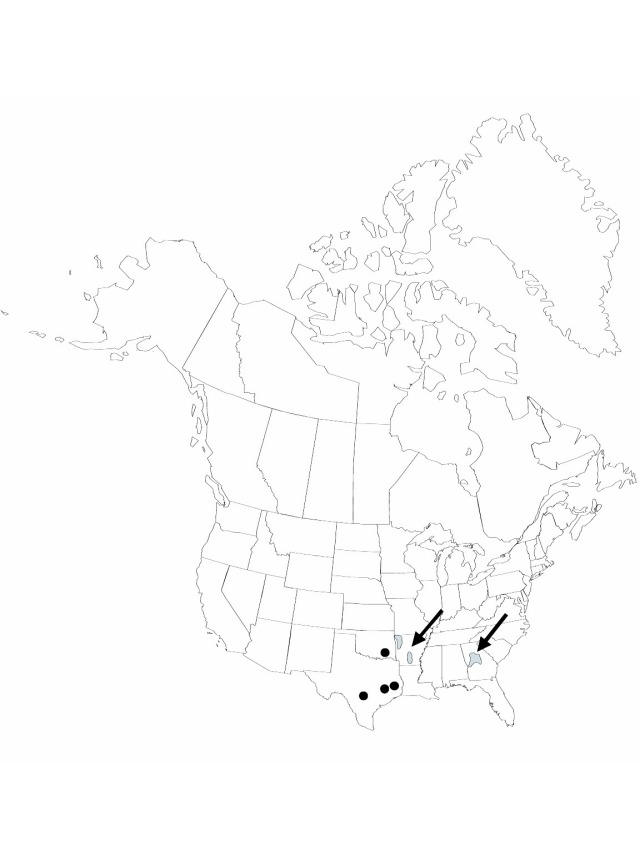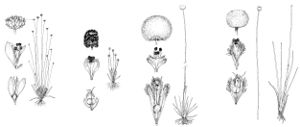Eriocaulon koernickianum
in H. F. Van Heurck,Observ. Bot. 1: 101. 1870.
Herbs, perennial, 5–8 cm. Leaves linear-attenuate, 2–5 cm, apex subulate to blunt. Inflorescences: scape sheaths as long as leaves, inflated; scapes filiform, 0.5 mm wide, 3–4-ribbed; heads dark gray or gray-green with rims of bracts and perianth pale, nearly globose or short-oblong, 3–4 mm wide, soft; receptacle glabrous; outer involucral-bracts usually not reflexed, not obscured by bracteoles and perianth, straw-colored, very lustrous, broadly oblong to suborbiculate, 1–1.25 mm, margins nearly entire, apex rounded, glabrous; inner bracts, receptacular bracteoles dark gray, gray-green, or gray-brown, very lustrous, oblong to cuneate, obliquely keeled, 1.5 mm, margins slightly erose, apex acute to obtuse, apiculate, with a few white, club-shaped hairs. Staminate flowers: sepals 2, grayish, linear-curvate, 1–1.5 mm, apex with a few white, club-shaped hairs abaxially, marginally; androphore broadly club-shaped; petals 2, low, toothlike, nearly equal, apex with club-shaped hairs; stamens 4; anthers black. Pistillate flowers: sepals 2, gray, linear-curvate, 1 mm, apex with scattered hairs abaxially, hairs pale, club-shaped, otherwise glabrous; petals 2, yellow-white, stipitate, broadly suborbiculate-rhombic, 1 mm, apex with white, club-shaped hairs abaxially; pistil 2-carpellate. Seeds deep reddish-brown, broadly ovoid or ellipsoid, 0.5 mm, often indistinctly reticulate or rugulose, papillate.
Phenology: Flowering spring–early fall.
Habitat: Moist to wet sands and sandy silts of seeps, particularly over and around arenaceous outcrops
Elevation: 0–1000 m
Distribution

Ark., Ga., Okla., Tex.
Discussion
Eriocaulon koernickianum is the most diminutive of our eriocaulons, widely disjunct in Georgia but seemingly most abundant on Piedmont granites.
Of conservation concern.
Selected References
None.
Lower Taxa
"narrowing" is not a number."narrower" is not a number.
